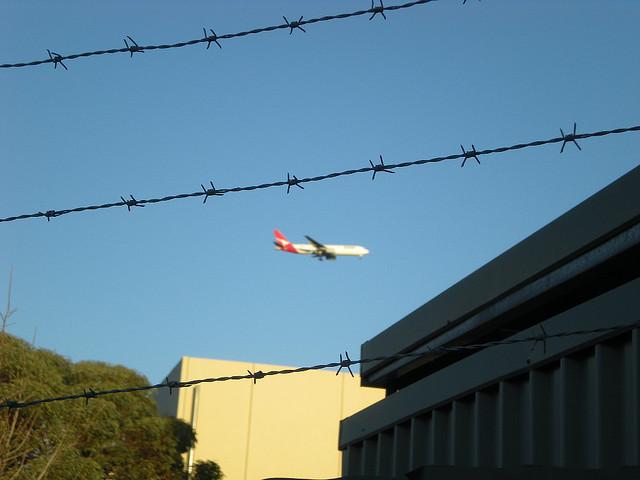Integrity at the Border
Posted By John Coyne on March 12, 2015 @ 12:30
The Department of Immigration and Border Protection (DIBP) is going to be a border enforcement agency! That’s hardly an earth-shattering statement, given the public policy dialogue in the media and senate estimates over the last three years. For enforcement agencies public trust and confidence are essential to the delivery of agency outcomes. And increased integrity and professionalism are the strategic capabilities that will assure public trust and confidence. But if this argument is so clear why are some immigration staff already struggling with the identity transformation associated with proposed changes to departmental accountability regimes.
From my perspective, the challenge of border security is just as much about maintaining the Australian people’s confidence in the probity of the DIBP, as it is about the provision of security outcomes. Sure the Australian public service demands its staff display higher levels of accountability compared to their private sector counterparts. But public service accountability, for the most part, resides with senior staff involved with the processes of policy determination, although this does not extinguish responsibility at implementation.
In the past, both immigration and customs officials have been investigated, prosecuted and sentenced for committing criminal offences in relation to their duties. These incidents have included staff becoming involved in drug importations, unauthorised access to official information, dealing in sensitive departmental information, and the ‘selling’ of visas. This serves as a reminder of the threat that corrupt ‘trusted insiders’ pose to our border security. That bitter experience has also shown that threats, such as organised crime groups, will deliberately seek out, groom and manipulate insiders to undermine border controls.
In their new law enforcement role, DIBP staff will be performing functions that have an increased level of accountability because of the dual responsibility of more direct and discretionary access to government’s coercive power, making them even more attractive targets for subversion.
DIBP will be subject, in time, to a different and higher level of accountability due to its enforcement focus. In this environment of increased accountability, even so much as the appearance of something as ‘not quite right’ will lead to public speculations about DIBP impropriety. Such incidents will, as you might expect, undermine public trust and confidence in DIBP.
To develop its integrity and professionalism DIBP is establishing a law enforcement style professional standards program. The program follows the Integrity Commissioner, Michael Griffin AM’s play book by designing-in corruption resistance, building an integrity framework that responds to the risks of subversion, and publicly demonstrating a focus on integrity. Unsurprisingly the Australian Border Force Bill 2015 [2], along with such measures as random drug testing, implements an increasingly prescriptive accountability regime that creates a framework to swiftly and decisively deal with serious misconduct.
The Australian Border Force Bill 2015 lays a strong foundation for the Secretary of DIBP to deliver an enforcement strategy. With the change staff are managing a complex transition in their role from public servants to enforcement officers. That involves much more than a name change and a new uniform, rather a drastic change in their role and accountabilities.
The Australian Border Force Bill 2015 will be an important instrument for the DIBP executive’s strategy to deliver the desired accountability changes, but by itself it won’t deliver results. Initial DIBP staff responses [3] to the proposed changes to the accountability regime reveal [4] that the drivers for the accountability changes have not been fully understood. For me, those responses are to be expected when a department undertakes such a fundamental organisational change.
While the creation of a professional standards framework, with an associated fair and just punitive system, is essential for an enforcement agency the success of this strategy will only be realised through further staff engagement. The challenge for the DIBP executive will be encouraging the necessary changes in organisational behaviour to create a culture focussed on increasing integrity and professionalism.
Retrofitting an enforcement accountability regime to a public service agency requires a substantive shift in cultural thinking amongst staff on what integrity and professionalism mean. And what the costs to personal freedoms such as privacy will be. For my money a strategy too focussed on the implementation of punitive disciplinary outcomes may serve only to create disgruntled staff and underground subcultures. With the proposed changes I would think that DIBP executives will need to consider how to identify and support those departmental staff who do not want to be enforcement officials, or are unwilling participate in the department’s transition. One thing for sure is that the cultural resistance to the DIBP organisational changes will continue for some time to come.
John Coyne is a senior analyst at ASPI. Image courtesy of Flickr user Michael Coghlan [5].
Article printed from The Strategist: https://aspistrategist.ru
URL to article: /integrity-at-the-border/
URLs in this post:
[1] Image: https://aspistrategist.ru/wp-content/uploads/2015/03/3646919354_1737238870_z.jpg
[2] Australian Border Force Bill 2015: http://www.aph.gov.au/Parliamentary_Business/Bills_Legislation/Bills_Search_Results/Result?bId=r5408
[3] responses: http://www.canberratimes.com.au/national/public-service/immigration-department-natives-still-restless-20150309-13yrgd.html
[4] reveal: http://www.canberratimes.com.au/national/public-service/public-servants-face-fasttrack-to-the-sack-20150302-13sbmp.html
[5] Michael Coghlan: https://www.flickr.com/photos/mikecogh/3646919354/in/photolist-8MneV3-6ygq4U
Click here to print.
